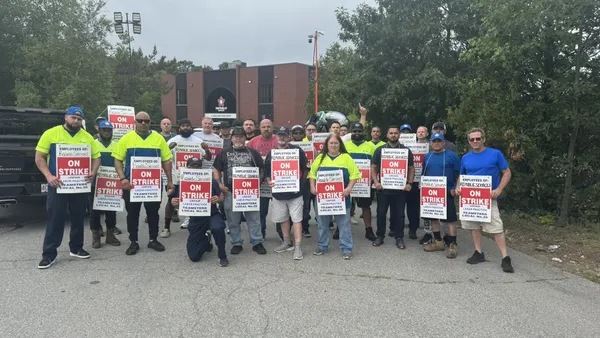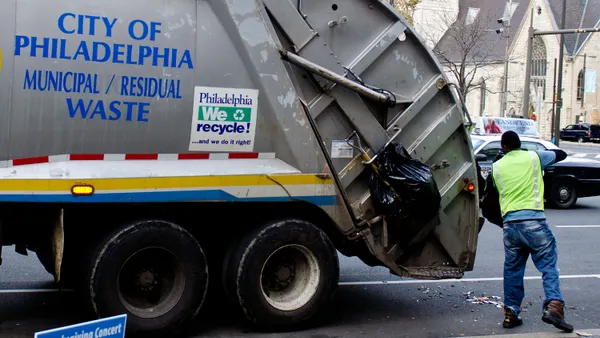Dive Brief:
- Keep Massachusetts Beautiful Founder and Executive Director Neil Rhein wrote a passionate column in CommonWealth urging Massachusetts residents to start taking control of the state's littering problem. "Let’s be frank. The amount of litter along Massachusetts' highways, city sidewalks, suburban streets, and secluded country roads is a public disgrace," he wrote.
- According to Rhein, state volunteers, MassDOT employees, and inmates have collected an average of 90,000 bags of trash (about 360 tons) from major highways each year over the past three years. The cleanups cost $1.3 million in 2015 alone.
- Rhein urged residents and community leaders to volunteer in the upcoming Great Massachusetts Cleanup during the months of April and May. The Cleanup is aimed to help achieve a "litter-free Massachusetts" and foster more appropriate waste disposal behaviors.
Dive Insight:
"Take a close look when you walk around or drive around today. Your eyes will be assaulted by a steady stream of Styrofoam coffee cups, empty 'nip' bottles, plastic beverage containers, and the most littered item on planet Earth—cigarette butts. We may as well rename our state Trashachusetts," Rhein wrote in the column. And he reminds his readers that this is not just an environmental issue—the expenses of these cleanups is costing the state millions of dollars.
Massachusetts isn't the only state dealing with a roadway litter problem. This week it was reported that more than 12,000 pounds (or 6 tons) of trash have been removed from Choctaw County, AL roadways by Sheriff Department employees and county inmates since mid-January. The cleanups have been assisted by a $125,000 grant from the Alabama Department of Environmental Management.
To combat such littering problems, Keep America Beautiful announced the "Great American Cleanup" earlier this month with a theme of "Clean Your Block Party," which challenges participants to clean or beautify their own blocks. However, littering cannot be stopped solely by temporary cleanup initiatives. Rhein explains that it is important for state officials to also implement education programs to teach residents proper disposal methods.










